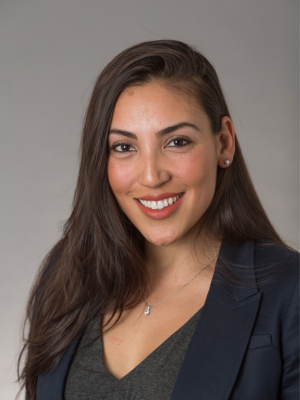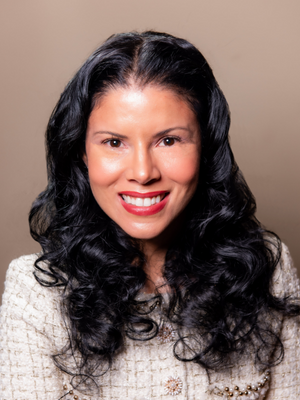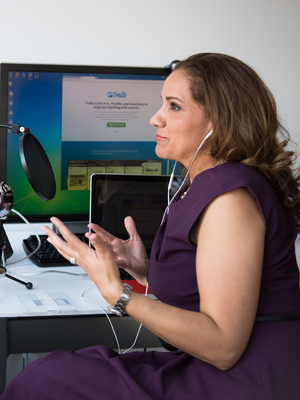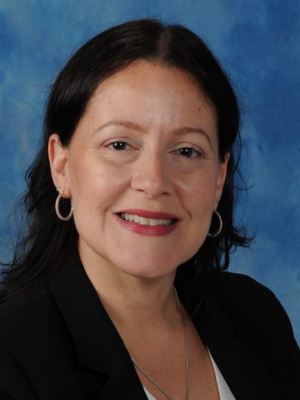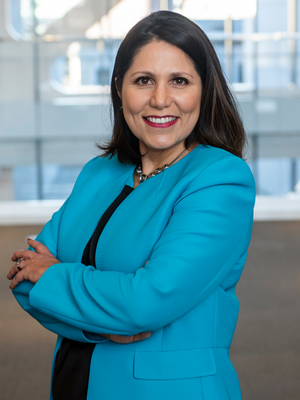 In 2024, Latinas remain significantly underrepresented in leadership roles across corporate America and Wall Street. Only about 1% of Latinas have reached C-suite executive positions, making them the least represented group at the highest levels of corporate America. Despite this, a number of trailblazing Latina leaders have defied the odds, breaking barriers and paving the way for future generations.
In 2024, Latinas remain significantly underrepresented in leadership roles across corporate America and Wall Street. Only about 1% of Latinas have reached C-suite executive positions, making them the least represented group at the highest levels of corporate America. Despite this, a number of trailblazing Latina leaders have defied the odds, breaking barriers and paving the way for future generations.
Notable examples include:
- Nina Vaca – CEO and Chairman of Pinnacle Group, a workforce solutions firm. Vaca has been instrumental in her company’s success and is a prominent advocate for Latina representation on corporate boards.
- Dorene C. Dominguez – Chairwoman and CEO of Vanir, a national leader in construction management and real estate development.
- Linda Alvarado – President and CEO of Alvarado Construction, a successful construction firm, and a groundbreaking owner in Major League Baseball.
In finance, Latinas are even less visible, often facing barriers like biases and stereotypes that hinder their career progression. These barriers include a lack of mentorship and sponsorship, which are critical for advancement, and limited access to inclusive workplace policies that support work-life balance. Research shows that Latinas often encounter a “broken rung” early in their careers, meaning they are less likely to be promoted to manager-level roles compared to their male counterparts.
Is Change Coming?
The inaugural U.S. Latina GDP Report, led by researchers at California Lutheran University and UCLA’s Geffen School of Medicine, reveals promising growth. In 2021 alone, U.S. Latinas contributed $1.3 trillion to the GDP, a figure larger than the economies of all but three U.S. states. It also reflects a 51.1% increase since 2010—compared to an 18.8% increase in the overall non-Hispanic GDP.
Key findings include:
- Labor Force Participation: Between 2010 and 2021, the number of Latinas in the workforce grew by 32.9%, significantly outpacing the 2.7% growth for non-Hispanic females. U.S. Latinas now have a labor force participation rate that is 2.5 percentage points higher than their non-Hispanic female counterparts.
- Educational Attainment: The number of Latinas with a bachelor’s degree or higher grew 103% from 2010 to 2021, much faster than the 38.3% growth for non-Hispanic females.
- Income Growth: Real income for Latinas increased by 46.0% over the same period, compared to 18.5% for non-Hispanic females.
Overall, this report positions Latinas as a key driving force behind the U.S. economy, with a rapidly growing economic footprint and resilience across multiple economic indicators such as labor participation, educational attainment, and income growth. This trend is especially significant given that Latinas account for only 9.3% of the U.S. population but have driven 30.2% of labor force growth since 2010. While these figures highlight the growing economic power of Latinas, translating this momentum into leadership opportunities requires actionable strategies and intentional support.
Actionable Advice for Latina Professionals
Latina leaders across industries emphasize the value of embracing cultural identity, cultivating strong networks, and demonstrating resilience and authenticity in the workplace. Over the years, theglasshammer.com has featured many Latina leaders who have echoed these key themes in their advice.
- Embrace Your Cultural Identity:
Many Latina leaders highlight the significance of using their heritage as a strength. They suggest leveraging unique perspectives to connect with diverse audiences and encourage others from similar backgrounds. This involves incorporating elements of their culture, such as family values and community orientation, into their leadership style. - Build a Strong Network:
Networking is often underscored as a key factor in professional growth. Latina leaders recommend actively seeking mentors, joining professional organizations, and engaging with the community to open doors and gain valuable support throughout one’s career journey. - Cultivate Resilience:
Resilience is essential for navigating challenges and adversity. Latina leaders encourage viewing setbacks as chances for growth, advocating for a mindset that sees failures as opportunities to learn and progress toward success. - Lead with Authenticity:
Being true to oneself and one’s values is vital for building trust and fostering a positive work culture. Latina leaders encourage embracing authentic leadership by sharing personal stories and experiences to connect more deeply with teams and stakeholders.
This advice not only guides Latina professionals in their career paths but also serves as inspiration for anyone looking to navigate leadership roles in a diverse and inclusive manner.
How Executive Coaching Helps Latina Professionals
While these practices provide a solid foundation, leadership coaching offers a transformative approach to help Latinas unlock their full potential. Executive coaching provides tailored support, helping Latina leaders overcome sometimes unique challenges such as underrepresentation and dual cultural expectations. Here’s how executive coaching benefits Latina professionals:
- Enhanced Leadership Skills and Self-Awareness
Executive coaching focuses on developing core leadership skills, such as strategic thinking, emotional intelligence, and effective communication. Latina professionals, who may experience self-doubt due to cultural and societal biases, can benefit from coaching by gaining greater self-awareness and confidence in their abilities. Coaching helps them leverage their strengths while working on areas of improvement, leading to a more authentic and impactful leadership style. - Overcoming Cultural and Systemic Barriers
Latinas often encounter cultural barriers that can limit their career advancement, such as the expectation of humility and deference in professional settings. This request for humility in women extends past Latinas with the current Vice President and Presidential nominee Kamal Harris just this week being asked about showing up with humility. An executive coach can help identify and dismantle these internalized and often external and projected misogynistic norms, encouraging Latina leaders to voice their opinions, advocate for themselves, and embrace a leadership presence that commands respect. Additionally, coaches can offer strategies to navigate systemic challenges, such as bias and lack of sponsorship, providing Latinas with tools to assert their value in the workplace. - Building Resilience and Navigating Bias
The experience of bias and microaggressions in the workplace is a common barrier for many Latina professionals. Coaching offers a safe space for Latinas to process these experiences and develop resilience strategies. Coaches can help them reframe negative encounters, practice self-compassion, and develop a personal narrative that emphasizes their strengths and successes despite adversity. - Supporting Identity and Authenticity in Leadership
Many Latinas struggle with balancing their cultural identity and the expectations of corporate culture. Coaching helps Latina professionals embrace their cultural heritage as an asset and encourages them to bring their authentic selves to work. This authenticity fosters greater engagement and satisfaction, as Latina leaders feel empowered to contribute their diverse perspectives to their organizations. - Promoting Representation and Inspiring Future Leaders
As Latinas ascend to higher leadership positions, they serve as role models and advocates for others in the community. Coaching prepares them not just to lead, but to mentor and lift up other Latinas, creating a positive cycle of representation and empowerment. The more Latina professionals in senior roles, the more the cultural narrative shifts, making it easier for future generations to see themselves in leadership.
A study from the Hispanic Association on Corporate Responsibility (HACR) revealed that Latinas who engage in coaching report higher levels of confidence, greater clarity in their career direction, and improved relationships with their peers and superiors. Companies that invest in coaching for their Latina employees also benefit from increased employee retention and engagement, as these leaders become more aligned with their roles and the organizational mission.
It is necessary to address systemic issues for progress, so as not to burden the individual with clearing barriers and obstacles that are beyond one person’s control. Addressing these disparities requires companies to implement more structured mentorship programs, track Latina representation at all levels, and create inclusive cultures that consider the unique challenges Latinas face.
By Nicki Gilmour, Executive Leadership Coach, Founder and CEO of theglasshammer.com


